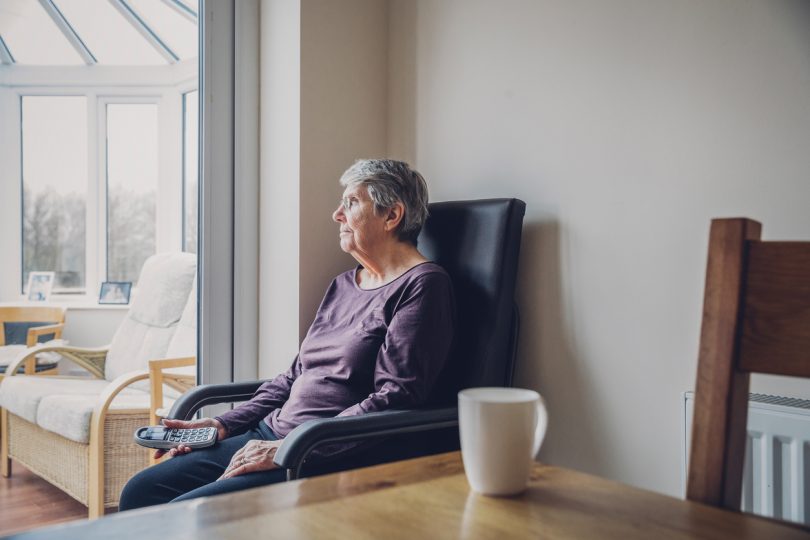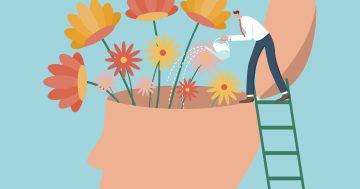
Older and alone: elderly Australians are at greater risk of mental health issues related to loneliness during quarantine. Photo: File.
Each day we live through the COVID-19 crisis, we see more of our life change. Work, family, connecting with friends, and our daily routines have fundamentally changed. There are few of us that have fully processed the gravity of what has happened, and what is still to come.
In these early stages of the pandemic, much effort has been rightly focused on ensuring that people have access to the materials essential for life. This includes access to food, a safe place to sleep, income, healthcare and medicine. In addition to responding to the immediate threats to health, and working to save lives, we have talked a lot about the human and economic impact of this event.
What is becoming very clear is we need to look after our mental health and emotional wellbeing through this ongoing crisis. As we change our lives, adjust our plans and defer our dreams, many of us find ourselves in situations that we did not plan for. There is an emotional cost to grappling with the need to physically distance and remove ourselves from people we love, family members who need us and folk we actually like just hanging out with.
Family and households are suddenly needing to rearrange physical spaces and routines as they need to stay together in the family home and juggle school, work and homelife. Single-person households are at real risk of social isolation, particularly if they are older and being told to stay away from others. People with mental health challenges are likely to find this additional anxiety severely impacting them. People facing financial stress due to job loss and loss of income will also be dealing with the emotional impacts of this.
There are already a range of services that are available for people who need help, with a range of easy contacts available on the ACT Government’s website. The Federal Government has also launched a portal to help people find the mental health support they need. It’s vitally important that people reach out when they need support, and realise the need for support is a very normal response to this unprecedented situation we all find ourselves in.
It is reassuring to see that the need to provide additional resources to support people looking after their mental health has been recognised by our political leaders, with a large element of the second economic rescue package focused on providing additional help for organisations who provide mental health services.
There is also a large effort being put into how we can ensure that people are able to access these services in new and different ways, including through telehealth and virtual platforms.
Even if we aren’t at the point of needing formal support, it’s important for us all to acknowledge that what is happening is immense and can at times be overwhelming or distressing. Even though I am still incredibly fortunate, there have been times over the last few weeks that I have found challenging, and it’s been incredibly helpful to talk through the anxieties and worries I have about what comes next.
This has highlighted that a key way we will get through this challenging time is to look out for ourselves and others. We need to check in with each other and show our compassion and understanding through those times when people may not be traveling all that well.
Simple things like scheduling a time each week to check in with a friend, making the space to talk to the kids about how they are feeling or connecting with an older neighbor are all ways that we can be there for others. There are some great resources for kids too, also available through the websites and portals, and a nice item on BTN this week that highlights the issues in a way that is highly accessible for your school-aged kids.
Advice is also flowing about ways we can look after ourselves mentally. Keeping up routines around physical exercise (maintained in a way that follows the advice around spatial distancing and hygiene) will be an important strategy for many people.
Many experts also suggest meditation, mindfulness and yoga and a number of apps are providing free access over this period. We know that social connection is vital, and while we can’t be physically together, there is a range of online activities springing up – my personal favourite is the couch choir that replaced the pub choir recently and brought people from all over Australia together to sing together in a way they had never done before.
We need to take care of ourselves and others through this period. What are your favourite strategies to look after your mental health and emotional wellbeing during this period?





















